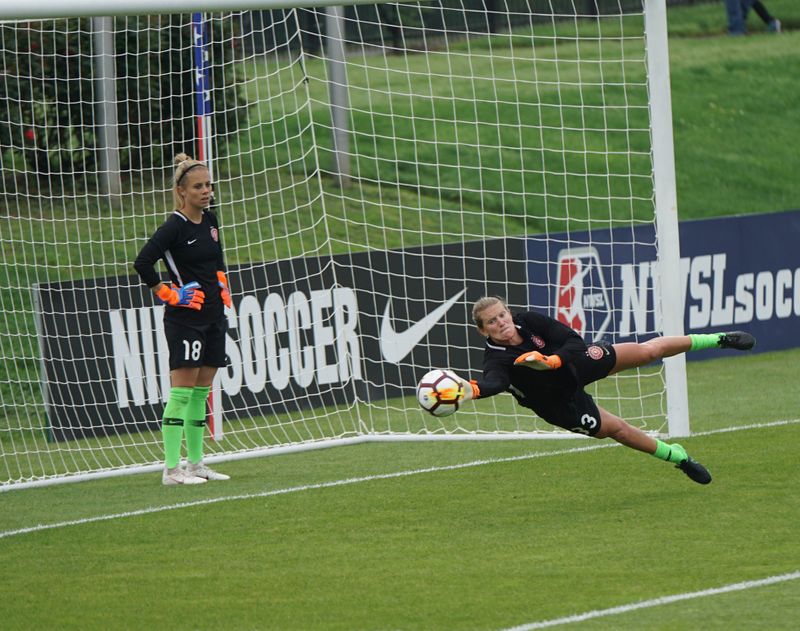
This logo isn't an ad or affiliate link. It's an organization that shares in our mission, and empowered the authors to share their insights in Byte form.
Rumie vets Bytes for compliance with our
Standards.
The organization is responsible for the completeness and reliability of the content.
Learn more
about how Rumie works with partners.
What percentage of people stereotype others?
The answer is 100%!
Stereotypes are when we judge an individual based on one characteristic, like their age, race, or job, rather than seeing them as the unique person they are.

Other people stereotype us too.
It's how we respond to these situations that can challenge others to think twice before making a judgement based on a stereotype.
Did you know?
Teach With Facts
Teaching others is one way to challenge stereotypes. This can be as simple as sharing a fact.
Consider this.
Eugene, who is Asian American, has gathered with colleagues to draft a grant proposal.

A team member turns to Eugene: "You should do all the numbers, you'll be best at that."
Eugene has no background in math, and his role doesn't usually involve numbers. He suspects his colleague is basing this suggestion on a stereotype.
To educate his colleague in a professional manner Eugene responds "I am not good with numbers, but I'm happy to take the lead on the writing. I have a masters in communications."
Quiz
What makes Eugene's response effective?
Eugene educates his colleague on the fact that he is actually not great with numbers, but offers what he is good at to benefit the project. The colleague now knows what Eugene is best at.
Question
When you suspect someone might be stereotyping you, ask a question to prompt them to reflect. In some cases, they may not even be consciously aware of their thought process.
Consider this.
Sarah, who identifies as a female, is with a group of friends talking about their dream careers. When Sarah expresses her desire to be a soccer player, her friend Lee says, "Well, that's surprising, I thought you'd say something like an artist or teacher."
 Photo by Jeffrey F Lin on Unsplash
Photo by Jeffrey F Lin on UnsplashSarah responds, "No, I've always loved soccer. How come you thought I'd want to be an artist or a teacher?"
Quiz
What was effective about Sarah's question?
Lee's comment is unfair for a number of reasons, and Sarah's reaction to the comment prompts Lee to further explain his thought process. This gives Sarah more information to determine how best to handle the situation. It is also a gentle-but-clear “tell me more” approach, which extends the conversation rather than shutting it down.
Interrupt And Echo
Highly offensive stereotypes should always be interrupted and corrected. Any bystanders should echo the correction to discourage the behaviour from being repeated.
Consider this.
George enters an elevator and sees a Chinese person, Dan, inside. George screams "Stay away I don't want Coronavirus!"

Dan interrupts immediately: "Not all Chinese people have Coronavirus." Others standing nearby repeat the same thing and comment on how ignorant and offensive George's remark is.
Quiz
What makes Dan's response appropriate?
Hateful stereotypes need to always be interrupted and responded to. Having a group of people echo the response - that it is inappropriate and ignorant is a powerful way to stop the behaviour from being repeated. There's power in numbers.
Take Action
Not all stereotypes are intended to be hateful.
In fact, most are unconscious and unintentional. It's up to each of us to challenge ourselves and others to treat each other as individuals instead of making judgements based on stereotypes.
What stereotypes do people make about you?
Think about the most common one or two assumptions people make about you. Plan out what your 'canned' response will be the next time you experience it. Use facts, ask questions, or interrupt to challenge the behaviour.
Did you know?
This Byte has been authored by
Mair Greenfield
Director of Indigenous Programs
Ervin So
Finance and Stuff
Tanya Qadir
Partnerships Manager
Tariq Fancy
Social Entrepreneur